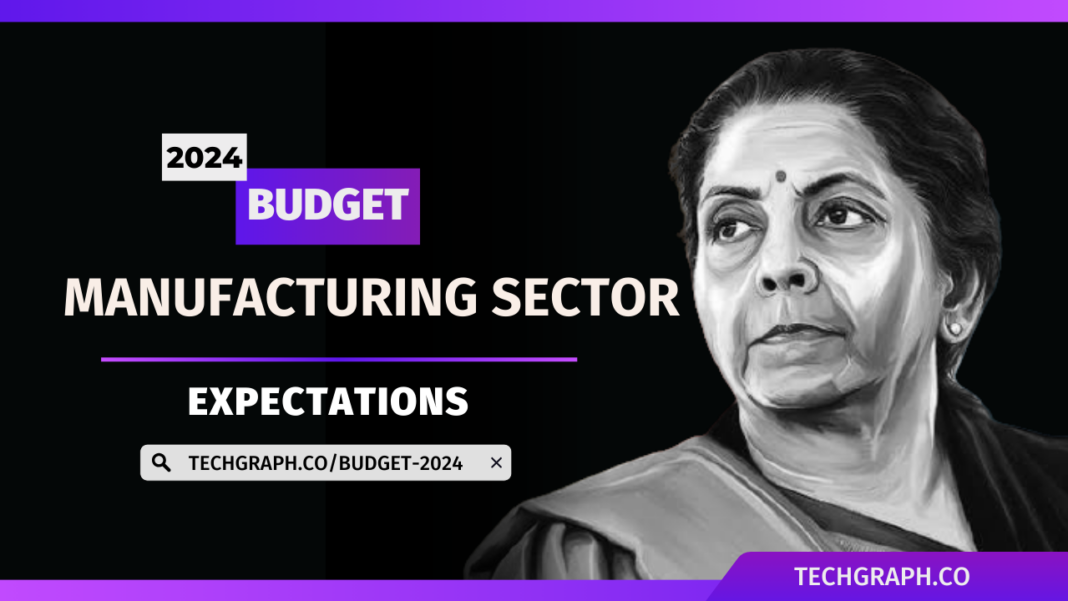In the run-up to Finance Minister Nirmala Sitharaman’s Budget 2024 announcement, leaders from India’s manufacturing sector are expressing their expectations and outlining key areas for government focus for pivotal manufacturing growth.
Here’s a breakdown of their perspectives:
Amrit Acharya, CEO & Co-founder at Zetwerk
India’s manufacturing moment is now, and we need to seize it with a 25-year vision. We stand at a pivotal juncture for Indian manufacturing. With unprecedented tailwinds and favorable policy support received from the Government of India, the time is ripe to chart a bold 25-year vision.
We must go beyond ‘Make in India’ and forge a self-reliant ecosystem through R&D investment, cutting-edge clean technologies, and robust skilling programs.
We also feel that innovation isn’t confined to age. To truly unlock our potential, we must bridge the gap between established manufacturers and new-age companies through a level playing field. By collaborating and leveraging their combined experience and agility, India can achieve higher growth in manufacturing and become a factory to the world, thus securing not just economic growth, but a brighter future for all.
Jayanth Jain, CEO, GM Modular- Electrical Solutions Manufacturer
As we approach the announcement of the Fiscal Budget 2024-25, we expect that the government will further prioritize infrastructure development and promote measures that boost regional manufacturing under the made-in-Indian theme.
Furthermore, we anticipate efforts to promote digitalization for inclusive growth. Our expectations from the forthcoming budget 2024-25 revolve around creating advancement in the technological landscape and stimulating innovation in the electrical industry. This will provide opportunities for companies like us to extend our product offerings and enter new segments and geographies.
We also hope to see more incentives for R&D in the sector, as well as initiatives to address any industry-specific difficulties, such as supply chain interruptions or rising raw material costs. In general, we believe that a budget focused on these areas will benefit not only the electrical industry but will also contribute to the country’s general economic growth
Prashanth Doreswamy, CEO and President, Continental Automotive India
The industry is keenly anticipating some favorable announcements in the upcoming budget. In my opinion, there are a few crucial areas that need to be covered to maintain consistency in the industry’s progress. Focus on local manufacturing continues to be an integral part of economic contribution. In the last few years, there were substantial announcements made, starting from Make in India, PLI Scheme, and National Logistics Policy, and within the vision of Aatmanirbhar Bharat semiconductor manufacturing and R&D became the key focus areas. The industry will greatly benefit from a balanced approach that promotes domestic innovation and global collaboration to enhance local manufacturing.
The cost of commodities went through fluctuations which also impacted the automotive sector. The industry is keenly awaiting an announcement on import duty relief which will have a positive impact on the raw material costs thus helping to stabilize the cost of commodities. This will in turn help in boosting growth and competitiveness in the automotive industry, especially the export market. Even with the focus on localization, there is a need for fair competition while safeguarding domestic interests. Streamlining import processes and reducing bureaucratic hurdles in India can attract foreign investments and enable the smooth flow of technology. A nuanced policy that boosts local manufacturing but does not unduly burden the segments of the automotive industry that are import-dependent is necessary.
This will further drive a better Ease of Doing Business ranking. India’s rank in the index has been improving rapidly. As a result, many top global players are setting up their manufacturing and R&D centers in the country. Considering the market, direct incentives may not be feasible at present due to the larger economic scenario. The government can introduce a comprehensive policy framework that fosters a conducive business environment and encourages R&D investments while driving sustainable innovation.




